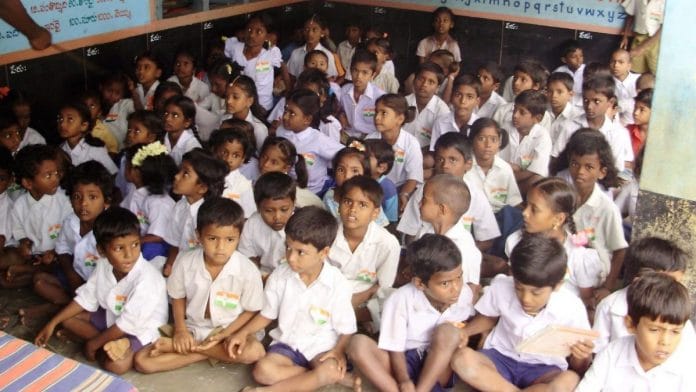The worst performer is Bihar, where 72 per cent of the teachers are untrained, followed by Assam (64%) and Madhya Pradesh (57%).
New Delhi: Close to 30 per cent of all elementary-level government school teachers (between classes 1 and 8) are untrained, and do not have the required teaching qualifications as mandated under the Right to Education Act (RTE), shows government data.
Bihar is the worst performer with around 72 per cent untrained teachers, followed by Assam with 64 per cent and Madhya Pradesh with 57 per cent, reveals the data collected from the Unified District Information System for Education and the National Institute of Open School (NIOS).
Under the RTE, the basic minimum qualification for those teaching classes 1 to 8 is a Diploma in Elementary Education (D.El.Ed), a four-year course. For teaching classes beyond that, a B.Ed degree is mandatory.
The current crisis, experts say, has been precipitated by the fact that in the early years of the Sarva Shiksha Abhiyan (SSA), which was launched in 2000, states hired teachers who did not possess the qualifications.
When the RTE came into force in 2010, it contained a provision that the untrained teachers would attain the required qualification by 2015. That, however, didn’t happen.
The NDA government then amended the RTE act in 2017, extending the deadline for the training of teachers to 2019. The government has also allowed the teachers to get the required diploma, through a qualifying exam, from the NIOS.
As a result, 13.7 lakh untrained teachers from across the country enrolled with the NIOS this year. Of those, 12.1 lakh appeared for the examination last week, shows data shared by the NIOS. The results are awaited.

State laxity
Experts blame the recruitment policy in the states and the laxity of governments, both UPA and NDA, in implementing the RTE Act, for the huge backlog of untrained teachers at the elementary level.
“It is due to the non-seriousness of the government in implementing the RTE Act that such a huge disparity has occurred. Elementary education, vital to the system, is being ignored,” said professor R. Govinda, former vice-chancellor of the National Institute of Educational Planning and Administration.
“Many teachers were hired in the states without the due qualification. In Bihar, the JD(U) government had passed a rule that elementary teachers required no diploma. In West Bengal also, a lot of teachers were recruited without due qualifications,” he added.
The untrained will have to get the required diploma by 2019 as, according to the amended act, those who do not will not be allowed to teach.
“The high numbers of untrained teachers show what is wrong with the education system at school level, which is why training of teachers is our first priority. If teachers are not trained to impart education, how can we expect learning outcomes to be good,” said a senior official with Ministry of Human Resource Development.
Even as the government is trying to sort out the problems at the elementary level, Govinda explained that at the level of high schools and senior secondary schools, the problem is much more complex.
“At the elementary level, the problem is still simple. Teachers are untrained and they are getting trained. But at the higher level, a teacher not qualified for mathematics is teaching the subject somewhere; in other places, a humanities teacher is teaching science,” he said.






